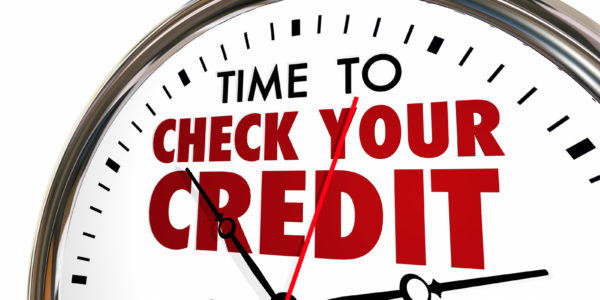Pulling your report, Possibly for the 1st time?
Sometimes I forget how much my life and habits have changed in the last 10 years, and when I work with someone to correct their course, I am genuinely concerned when they don’t know their credit score or have never pulled a credit report, this is not a judgement, don’t get me wrong, there is just so much that can go wrong these days. Just 20 years ago, when I was just starting out with real estate and my own finances, there seemed to be more leeway in how credit was granted. Credit reporting wasn’t always accurate and there was not as much social security card sharing/fraud as there is today.
I am currently working with a client to get his finances in order to purchase his first home. He has been given so much bad information in the past, he was unable to qualify for a loan and didn’t understand how his habits affected his credit scores. You do not need perfect credit, but it is so important to know where you stand on this, because what you don’t know can cost hundreds of thousands over the life of your mortgage or thousands in interest payments on credit cards especially if you have a lower credit score. The lesson is a hard one for him to swallow, but there is hope, this can all be fixed.
There are so many other reasons to know what is going on in your report, and if you haven’t looked at your score in a while, or ever, it’s time to face the report. By federal law, all 3 credit reporting agencies must supply you with a credit report each year, free of charge. The credit agencies are not obligated to provide scores but we will work in Part 2 to find scores for free.
Make checking you credit report this a yearly habit, or apply for credit cards that provide a monthly score and monitoring as part of their package. You should always know where your credit stands.
Don’t Take Bad Advice
There are many sites on the web out there that say, “pour a glass of wine, sit down and go thru your report”. Bad idea! Having a glass of wine will make you care less, you need to go through this process clear headed and ready to plan out changes. The sooner you clear up your credit, the sooner you will be in control. Fear will keep you where you are and fear will not allow you to make real change.
My hope for this process is that you will grow your own financial future, save money and retire young (or older, whatever your preference) with the right amount of money saved. Carrying a lot of credit will sabotage this plan, so let’s open your credit reports and start your process.
What are the 3 agencies and how do I get the free credit reports?
The 3 credit reporting agencies are Equifax, Experian and Transunion. These 3 companies have created a website that provides a free annual credit report for each agency, this site is called annualcreditreport.com.
Be Careful here…When you use a browser to search for “free credit reports” or for the individual credit reporting companies, many for profit credit reporting sites will come up. These sites will try to get you to pay for the report or try to sell you credit monitoring, you do not need it, just save your money and get to know your own report, this in time will give you the confidence to keep up on your own score. Do not spend a dime on this process!

Go to Annualcreditreport.com, sign up for the free credit reports, print out all 3 reports, grab a highlighter and a pen and carve out ½ hour to scour the reports.
All 3 agency reports are visually different, one may have information that the other 2 do not have. Don’t worry about this, it is ok for now, as long as the information they have is correct. You are now at the information gathering stage.
What are you looking for? Here are some common errors…
- False identity information (wrong name, phone number, address)
- Accounts with another person with the same or a similar name as yours (the mixing of two consumers information in a single file is called a mixed file)
- Accounts resulting from identity theft
- False reporting of account status
- Accounts that have been reported as open
- Accounts that are incorrectly reported as late or delinquent
- False information such as date of last payment, date opened, or date of first delinquency
- Debt accounts listed more than once (possibly with different names, different spellings)
If this is the first time you are looking at a report, I’ll walk you thru each report since the reports can all be visually different.
![]()
What to look for in each section;
- Summary – Be sure all of you personal information is correct
- Revolving Accounts – All credit cards – Highlight any late payments these are noted by a bold 30/60/90, on time payments will be noted as a ✔
- Mortgage Accounts – Follow same as above
- Installment Accounts – All loans and unsecured notes – Follow same as above
- Other accounts – Child support obligations and rental agreements
- Consumer Statements – Items you may disagree with
- Personal Information – Check this carefully, an address that is not yours may indicate fraud
- Inquiries – Hard inquiries impact your credit score, soft inquiries do not impact your score.
- Public Records – Bankruptcies, Judgments, Liens
- Collections – Debt placed with collection agencies, stay on record for 7 years
- At a Glance – Personal Information
- Accounts – Negative information shows first; Collections and late pays, credit accounts follow, highlight same as above, this account shows circles with ‘ok” if on time
- Hard Inquiries – Will Stay on report 2 years
- Soft Inquiries – Do not impact credit
- Section 1 – Personal information
- Section 2 – Collections, if any
- Section 3 – Credit Accounts – Each account has a rating box, highlight if other that ‘ok’.
Now that you have all 3 reports, and have researched for any derogatory information, you have 2 routes;
Route 1
- No derogatory information! – Congratulate yourself for keeping it clean!
Next, Know where your credit limits are and how much is used
- Add all of the credit available on all of you cards together
- Add all of the credit used on all cards
- Divide credit used by credit available and that is the credit % used.
What is your oldest credit card account? The longest open in years?
- When you find this card account, do not close this account. The longer you have a credit card the better your account looks. FYI, 25+ years with an account is how you get an excellent rating in the future.
Route 2
The Derogatory Stuff – What to do next?
Take few days to understand and make sure you didn’t miss anything, scour the report 2-3 times.
Create a Spreadsheet
Create a tracking spreadsheet for each reporting agency, with the following header information;
Account – Issue – Incorrect or real – dollar amount (if collection) – notes
We will be using this information to either make corrections to your credit reports or create a new understanding along with new credit habits for your financial future.
There is some good news if you have a collection account that has been paid off and are looking for a mortgage, you may still qualify for a loan under the right instances, So, it may not take years to reach your goals just some work.
What’s Next?
If you have broken down all of your credit report info into a spreadsheet and are ready to move to the next step, first Congratulate yourself! This is an important step and you must stop, see your wins, know you are on the right path and continue forward momentum.
Now that you have acknowledged your win, and have congratulated yourself, we will move to
Getting to know your credit report P2 and clean up the report, and create a plan to move your credit score higher.
